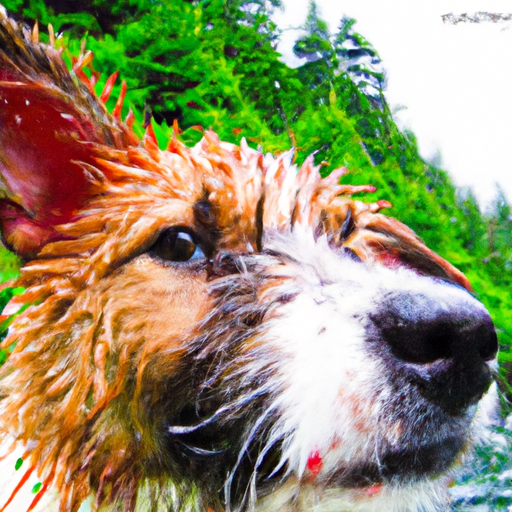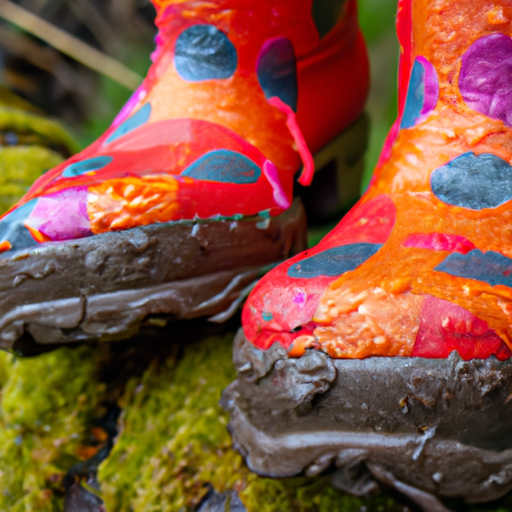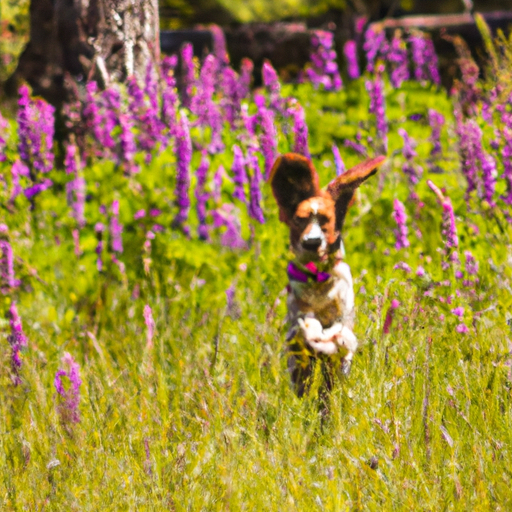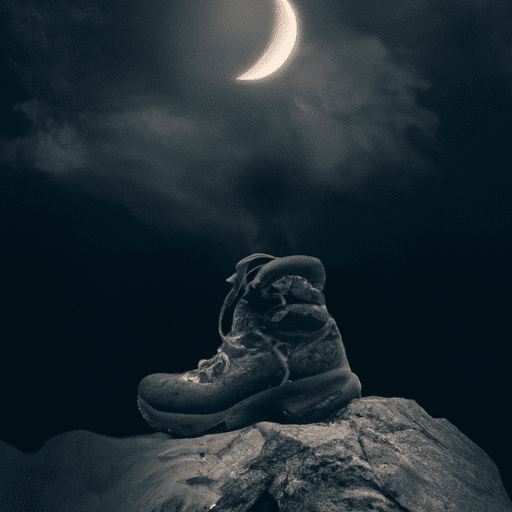So, you've brought home a new furry addition to your family, and as much as you love them, accidents can happen, especially when it comes to potty training. It can be frustrating and messy, but don't worry, we've got you covered. In this article, we'll provide you with some helpful tips on what to do if your puppy has an accident inside, ensuring a smoother and cleaner journey towards their potty training success.
Immediate Response
Stay Calm
If your puppy has an accident inside, it's important to stay calm. It can be frustrating and inconvenient, but getting upset or angry will only confuse or scare your puppy. Remember, accidents happen, especially with young puppies who are still learning. Stay patient and approach the situation with a level head.
Move the Puppy
Once you've remained calm, gently move your puppy away from the accident site. This is important to prevent them from stepping or rolling into the mess, which could spread it to other areas of your home. Carefully pick up your puppy and place them in a safe area where they can be contained temporarily. This will help you focus on cleaning up the mess without worrying about your puppy getting into it.
Contain the Mess
Next, you'll want to contain the mess to prevent it from spreading or seeping into your floors. Use disposable gloves to clean up any solid waste, picking it up with a paper towel or scoop and placing it into a plastic bag. For urine, use absorbent paper towels or a cloth to blot the area and soak up as much liquid as possible. Avoid rubbing the urine into the carpet or floor, as this can make it harder to remove later on.
Clean-up Process
Act Quickly
Acting quickly is crucial when it comes to cleaning up after a puppy accident. The longer you wait, the more time the mess has to set in and become more difficult to remove. As soon as you've contained the mess, begin the cleaning process immediately. The quicker you respond, the better chance you have of preventing stains or lingering odors.
Use Proper Methods
When it comes to cleaning up after a puppy accident, it's important to use the proper methods to ensure effective removal. For solid waste, use a disinfectant or pet-safe cleaner to sanitize the area thoroughly. For urine, you can make a homemade solution of equal parts water and distilled white vinegar, or purchase an enzymatic cleaner specifically designed to break down pet odors. Blot the affected area with the cleaner, following the product instructions, and allow it to sit for a few minutes before blotting it dry.
Eliminate the Odor
Even if you can't smell any lingering odors after cleaning up a puppy accident, it's important to eliminate them completely. Otherwise, your puppy may be more likely to repeat the behavior in the same area. You can use a pet-friendly odor-neutralizing spray or sprinkle baking soda over the area to help absorb any remaining smells. Allow it to sit for a few hours before vacuuming or wiping away the residue.
Preventing Future Accidents
Establish a Routine
Establishing a routine is key to preventing future accidents. Puppies thrive on consistency and structure, so setting a regular schedule for bathroom breaks is essential. Take your puppy outside first thing in the morning, before bedtime, after meals, and every few hours in between. By following a routine, your puppy will begin to associate specific times and locations with bathroom breaks, reducing the likelihood of accidents inside.
Supervise the Puppy
Until your puppy is fully house-trained, it's important to supervise them closely when they're indoors. Keep an eye on their behavior and body language, as these can be signs that they need to go outside. If you notice your puppy sniffing, circling, or pacing, it may be a cue that they need to be taken to their designated bathroom area. Promptly guide them outside to prevent accidents from occurring inside your home.
Reward Good Behavior
Positive reinforcement is a powerful tool when it comes to house-training a puppy. Whenever your puppy goes to the bathroom outside, be sure to praise and reward them. Give them verbal praise, a treat, or a pat on the head to let them know they've done well. This positive association will reinforce the desired behavior and encourage your puppy to continue going to the bathroom outside.
Addressing Health Issues
Consult a Veterinarian
If your puppy is consistently having accidents inside, it's important to consult with a veterinarian. There may be underlying health issues that need to be addressed, such as urinary tract infections or gastrointestinal problems. A thorough examination by a veterinarian can help identify any potential medical issues that may be contributing to the accidents.
Check for Medical Conditions
In addition to consulting a veterinarian, it's also important to check for any medical conditions that may contribute to your puppy's accidents. Some puppies may have a congenital issue or a chronic condition that affects their ability to hold their bladder or control their bowels. Keep an eye out for any other symptoms or abnormal behaviors, and discuss them with your veterinarian for further evaluation and guidance.
Handling Repeated Accidents
Rule Out Training Issues
Repeated accidents may indicate that there are some training issues that need to be addressed. It's possible that your puppy hasn't fully grasped the concept of house-training or that they haven't been consistently reinforced for appropriate bathroom behavior. Review your training methods and ensure that you're providing clear and consistent instructions to your puppy.
Consider Crate Training
Crate training can be a helpful tool in preventing repeated accidents and teaching your puppy to hold their bladder. When used correctly, a crate can become a safe and cozy den-like space for your puppy. Dogs naturally avoid soiling their sleeping area, so by using a crate, you can encourage your puppy to hold their bladder until they are let outside. However, it's important to ensure the crate is not being used as a punishment and that your puppy has regular breaks to go outside.
Seek Professional Help
If you've tried various methods and are still struggling with repeated accidents, it may be beneficial to seek professional help from a dog trainer or behaviorist. They can assess your specific situation and provide guidance on effective training techniques tailored to your puppy's needs. A professional can also help you identify any underlying issues, such as anxiety or fear, that may be contributing to the accidents.
Dealing with Anxiety or Fear
Identify the Cause
Anxiety or fear can sometimes lead to accidents inside. It's important to identify the root cause of your puppy's anxiety or fear to effectively address the issue. Common causes include changes in routine or environment, loud noises, separation anxiety, or previous negative experiences. Once you understand the cause, you can begin implementing strategies to help alleviate your puppy's anxiety and minimize accidents.
Implement Desensitization Techniques
Desensitization techniques can be helpful in reducing your puppy's anxiety or fear related to specific triggers. Gradually exposing your puppy to the trigger in a calm and controlled manner can help them develop a more positive association over time. For example, if your puppy is fearful of loud noises, start by playing recordings at a low volume and gradually increase the volume as they become more comfortable. Pairing this exposure with positive reinforcement, such as treats or praise, can further reinforce positive associations.
Consider Behavior Modification
If your puppy's anxiety or fear is persistent and impacting their ability to house-train, it may be necessary to consider behavior modification. This can involve working with a professional dog behaviorist who specializes in anxiety-related issues. They can develop a customized behavior modification plan to address your puppy's specific fears or anxieties and help them overcome their obstacles.
Using Training Pads or Litter Boxes
Provide Proper Training
If you choose to use training pads or litter boxes as a temporary solution, it's important to provide proper training and guidance for your puppy. Place the training pad or litter box in a designated area of your home, away from their sleeping and eating areas. Encourage your puppy to use the designated spot by placing them on the pad or litter box after meals or when you notice signs that they need to go. Be consistent and patient during this training process, gradually reducing the number of pads or transitioning to outdoor elimination.
Gradually Transition Back to Outdoor Elimination
While training pads or litter boxes can be helpful in certain situations, it's important to gradually transition your puppy back to outdoor elimination. This will prevent them from becoming reliant on indoor options and can help establish a consistent routine for going outside. Once your puppy is consistently using the pads or litter box, slowly move them closer and closer to the desired outdoor spot. Eventually, remove the indoor option altogether and reinforce outdoor elimination through positive reinforcement and consistency.
Avoiding Punishment or Harsh Techniques
Understand Puppies' Limited Bladder Control
It's important to keep in mind that puppies have limited bladder control, especially when they're young. Punishing or scolding your puppy for accidents can be confusing and counterproductive. They may associate the punishment with you catching them in the act, but not necessarily with the act of going to the bathroom indoors. Instead of punishing, focus on positive reinforcement and redirecting their behavior to the appropriate outdoor area.
Promote Positive Reinforcement
Positive reinforcement is pivotal in house-training your puppy successfully. Whenever your puppy goes to the bathroom outside, make sure to shower them with praise, rewards, and affection. This positive reinforcement creates a strong association between going outside and receiving positive feedback from you. By using positive reinforcement consistently, you'll encourage your puppy to continue their good behavior and eliminate the need for punishment.
Seeking Advice from Experienced Owners
Join Pet Owner Communities
One of the best ways to gain knowledge and learn from experienced owners is by joining pet owner communities. These can be online forums, social media groups, or local meetups. By connecting with other puppy owners, you can share experiences, seek advice, and gain valuable insights to help you navigate the challenges of house-training. The collective wisdom of experienced puppy owners can be an invaluable resource.
Consult with Trainers or Breeders
If you're struggling with house-training your puppy, don't hesitate to reach out to professional trainers or breeders. They have experience working with puppies of various breeds and temperaments and can offer valuable guidance specific to your puppy's needs. Trainers and breeders can provide expert advice, training techniques, and tips to overcome challenges and ensure successful house-training.
Conclusion
House-training a puppy can be a challenging process, but with patience, consistency, and the right techniques, it is achievable. Remember to stay calm, clean up accidents promptly and effectively, and focus on prevention and positive reinforcement. Seek guidance from professionals and experienced owners when needed, and remember that accidents are a normal part of the learning process. By implementing the tips and strategies outlined in this article, you'll be on your way to successfully house-training your puppy and creating a happy, clean, and stress-free environment for both you and your furry friend.






